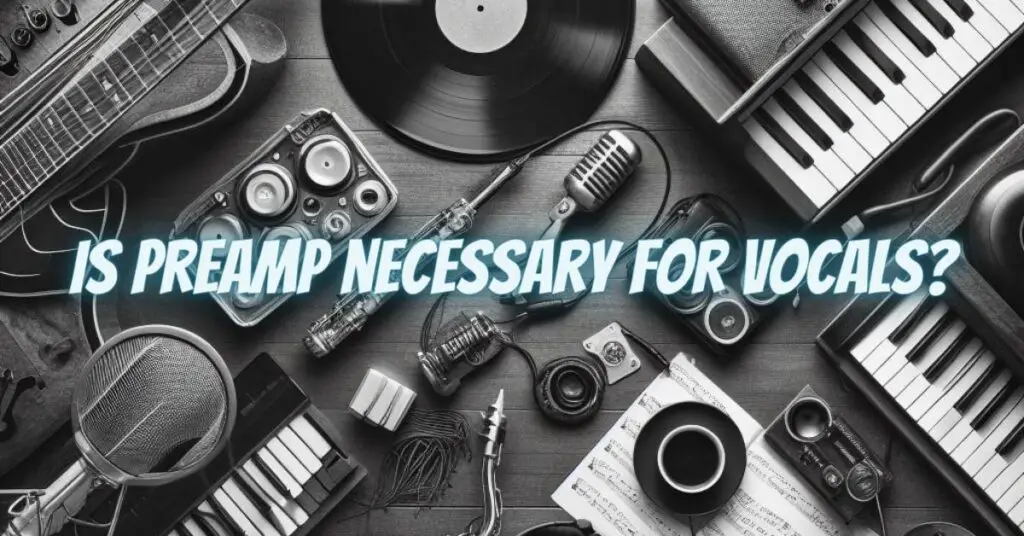In the intricate tapestry of audio production, the question of whether a preamp is necessary for vocals is a topic that resonates with recording engineers, musicians, and vocalists alike. The preamplifier, often abbreviated as preamp, plays a pivotal role in shaping and amplifying the delicate nuances of a vocal performance. This comprehensive exploration delves into the reasons behind the necessity of preamps for vocals, examining their impact on signal integrity, tonal character, and overall sonic excellence.
- Signal Conditioning and Amplification: At its core, a preamp serves the fundamental purpose of amplifying weak audio signals from microphones to a level suitable for processing by other audio gear. Vocals, characterized by a wide dynamic range and subtle tonal variations, benefit immensely from the signal conditioning provided by a preamp. The preamp ensures that the intricacies of a vocal performance are faithfully captured and transmitted through the audio chain.
- Low Noise and High Signal Integrity: The delicate nature of vocal recordings demands a low noise floor and high signal integrity. A quality preamp minimizes unwanted noise, ensuring that the purity of the vocal signal remains intact. This is particularly crucial in capturing soft passages, breathy vocals, and nuanced expressions without introducing undesirable artifacts.
- Tonal Coloration and Character: While transparency is key for certain applications, many preamps offer the added benefit of tonal coloration and character. This becomes an artistic tool for engineers and vocalists seeking to impart a specific sonic signature to their recordings. Premium preamps often provide selectable coloration options, allowing users to sculpt the tonal characteristics to suit the mood and genre of the performance.
- Impedance Matching and Mic Compatibility: Different microphones exhibit varying impedance characteristics, and a preamp with adjustable impedance settings ensures optimal matching with the microphone in use. This feature becomes crucial for capturing the unique sonic qualities of different microphone types, contributing to a more nuanced and textured vocal recording.
- Phantom Power for Condenser Microphones: Many studio-grade condenser microphones, widely favored for vocal recording, require phantom power for proper operation. A preamp equipped with stable and clean phantom power ensures the reliable functioning of condenser mics, enabling the capture of vocals with extended frequency response and detail.
- Dynamic Control and Gain Staging: Vocal performances often involve dynamic shifts, from soft whispers to powerful belts. A good preamp provides effective dynamic control through adjustable gain settings, allowing engineers to achieve optimal signal levels without introducing distortion. Proper gain staging ensures that the vocal signal remains consistent and well-balanced throughout the recording.
- Versatility for Various Recording Scenarios: A dedicated vocal preamp is designed to cater specifically to the unique requirements of vocal recording. Whether tracking in a professional studio or a home setup, the versatility of a quality preamp allows for consistent sonic excellence across diverse recording environments.
In the sonic alchemy of vocal recording, the preamp emerges as an indispensable tool for achieving excellence. Its role extends beyond mere signal amplification, encompassing crucial aspects of noise reduction, tonal shaping, and dynamic control. Whether aiming for pristine transparency or seeking to impart a touch of analog warmth, the necessity of a preamp for vocals becomes evident in the pursuit of capturing the true essence of a vocal performance. As a linchpin in the audio chain, a quality preamp elevates vocal recordings from mere sound to a resonant and emotive art form.


